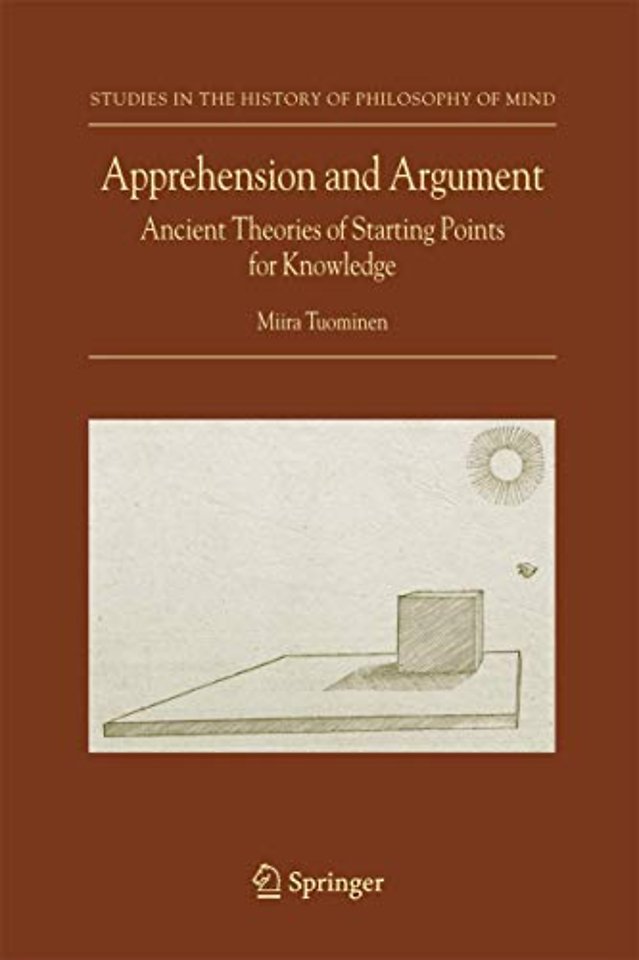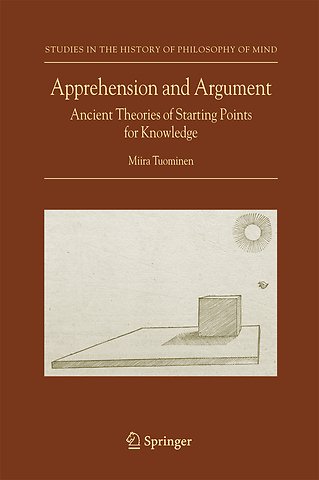Apprehension and Argument
Ancient Theories of Starting Points for Knowledge
Samenvatting
In order for there to be knowledge, there must be at least some primary elements which may be called ‘starting points’.
This book offers the first synoptic study of how the primary elements in knowledge structures were analysed in antiquity from Plato to late ancient commentaries, the main emphasis being on the Platonic-Aristotelian tradition. It argues that, in the Platonic-Aristotelian tradition, the question of starting points was treated from two distinct points of view: from the first perspective, as a question of how we acquire basic knowledge; and from the second perspective, as a question of the premises we may immediately accept in the line of argumentation. It was assumed that we acquire some general truths rather naturally and that these function as starting points for inquiry. In the Hellenistic period, an alternative approach was endorsed: the very possibility of knowledge became a central issue when sceptics began demanding that true claims should always be distinguishable from false ones.
Specificaties
Inhoudsopgave
<p>Acknowledgements.- Abbreviations and a Note on the Texts.- Introduction.- Part I: Platonic-Aristotelian Tradition.- 1. Premises of Argumentation. 2. Intellectual Apprehension.- Part II: Alternative Approaches. 3. Hellenistic Philosophy.- Conclusion. Bibliography. Index of Contents. Index of Names.- Index of Cited Texts.</p>

